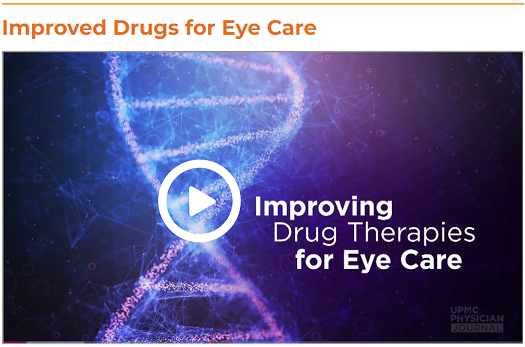The Department of Ophthalmology at the UPMC Vision Institute treats rare genetic disorders. The most promising treatments revolve around three strategies: cameras and processors that gather and translate light for the brain, genetic therapies that aim to improve some cells’ ability to sense and process light, and stem-cell treatments to grow new photoreceptor cells.
Click on the link for more details on the Retinal Dystrophy Clinic.
The Department of Ophthalmology at the University of Pittsburgh School of Medicine’s retinal research focuses on photoreceptor cells, genetic testing, imaging, and optogenetics. Retina research laboratories include:
- Advanced Ophthalmic Imaging Laboratory
- Digital Twin Lab
- Fovea Development Laboratory
- Gene Therapy for Retinal Disease Laboratory
- Ophthalmic Biomaterials Laboratory
- Retinal Degeneration Research
- Retinal Development Laboratory
- Retinal Epigenetics and Genomics Laboratory
- Systems Pharmacology Lab of Retinal Degeneration
- Visual Brain Laboratory
One of the camera devices (known as artificial retinas) to treat visual impairment caused by retinitis pigmentosa from José-Alain Sahel, MD, Distinguished Professor and Chairman and Founder of the UPMC Vision Institute, was granted limited approval by the FDA. The device uses a camera to gather light, and a video processing unit converts the light into electronic data that is transmitted wirelessly to an artificial retina implanted at the back of the eye, which interprets it for the brain, according to an FDA news release.
In optogenetics, Dr. Sahel made a breakthrough that allowed a man to see after 40 years of total blindness. Read more about it in our Fall 2021 Sight + Sound Newsletter.
Jay Chhablani, MD, has a series of videos on diabetic macular edema in which he discusses awareness, diagnosis, and treatment.
For the latest news on groundbreaking research on Inherited Retinal Degenerative Diseases, visit our Retinal Regeneration blog and subscribe to EEF’s Monthly Newsletter.
